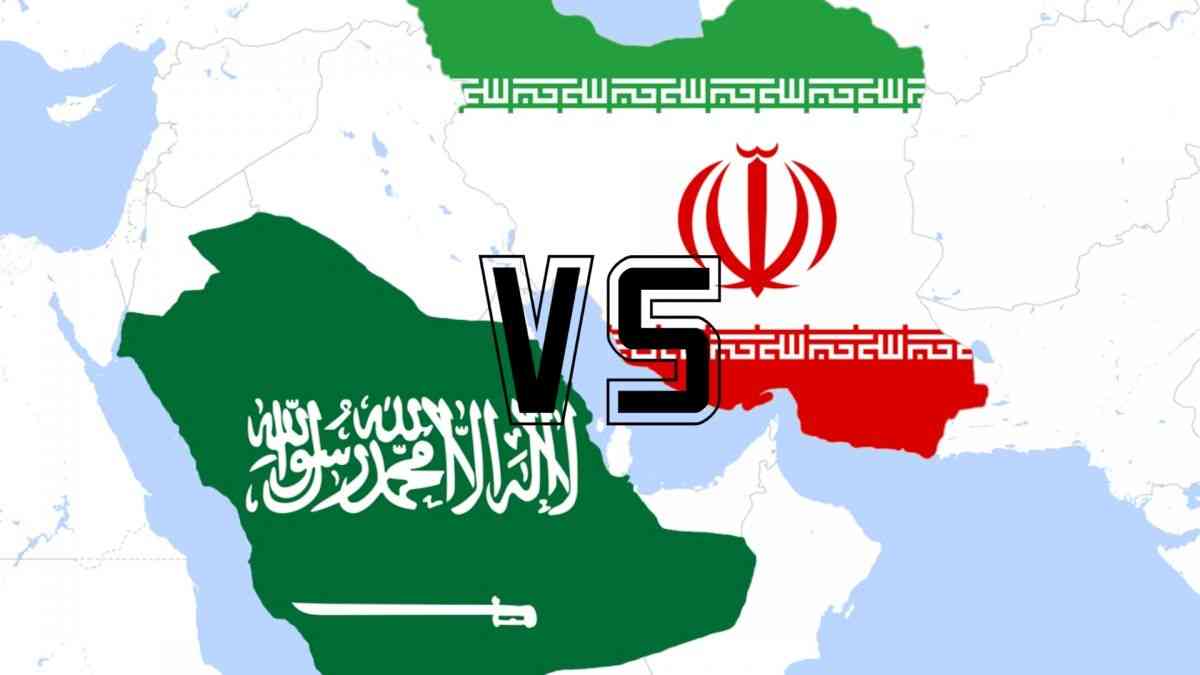On November 25, 2006, US Vice President Dick Cheney boarded a plane to Riyadh to hold meetings with King Abdullah of Saudi Arabia, the absolute ruler of the desert kingdom. For the first time in six and a half years, the talk in Washington was not of American victories in Iraq, but of an organized withdrawal of coalition forces after setbacks and defeats of the American forces. The Saudis expressed concern that their neighbor and historical enemy, Iran, would use the departure of the United States to fulfill its ambitions in the region. That is why the Saudi ambassador to Washington, Prince Turki Al-Faisal, said to the White House without hesitation: "Since America came to Iraq without an invitation, it should not leave without an invitation."
Dick Cheney also discussed with the Saudis about the price of oil, as the global energy market prices witnessed a strong push that pushed prices to record levels, which posed a threat to the financial prosperity in the United States and the economy of its trading partners. It also represented a dilemma for US foreign policy in the Middle East. Oil prices, which reached $78 a barrel, remained, as oil-producing countries took sudden profits, and the George Bush administration was concerned about the challenge of what the Iranian government would do with its new billions.
On that, the New York Times said: "Iran's profits from oil increased last year from 15 billion to more than 45 billion dollars, achieving profit rates not seen since 1974 when Iranian oil revenues tripled at once."
The rise in Iranian oil profits was accompanied by a boom in tensions and violence, including a month-long fierce war in Lebanon between the Israeli and Hezbollah forces, that the Shiite party whose leadership receives political, financial, and military cover from Iran. There is a possibility that President Mahmoud Ahmadinejad will use his country's oil revenues to accelerate the Iranian nuclear program and promote the army and arming Hezbollah in Lebanon, Hamas in Gaza, and pro-Iranian Shiite militias in Iraq. This possibility was a terrible nightmare for officials in Washington and Riyadh. The Al Saud family witnessed such a horror in the past.
The Saudi monarch at the time, Abdullah, realized that oil revenues represented 80% of Iranian export earnings. Therefore the volatile prices in oil markets would have exposed Tehran to the risk of an economic collapse. Only one country has the potential and motivation to conduct an adjustment to this level of oil prices. The Kingdom of Saudi Arabia, with its vast oil reserves and high production capabilities, can sink the oil market by pumping enough crude oil and prices will collapse. The royal family in Saudi Arabia realized that oil dumping was considered a major economic war, and it was equivalent to throwing a bomb on the enemy's land.
On November 9, 2006 (four days after Cheney’s return to Washington), the Washington Post published an article by Nawaf Obaid, a prominent security adviser to the Saudi government, and an associate researcher at the Washington Center for Strategic and International Studies. In the article, he warned that the sudden withdrawal of the United States From Iraq would lead to a major Saudi intervention to stop Iran-backed Shiite militias from killing Sunnis. He added that Saudi Arabia, as the center of influence in the Middle East, and the actual origin of Islam for the Sunni nation, has the means and religious responsibility to interfere in Iraq.
Finally, King Abdullah decided to constrain Iranian support for the militias using an oil policy. If Saudi Arabia increases production by half the oil price, Saudi Arabia will still be able to cover its current expenses. Still, it will be very severe for Iran, which is facing economic difficulties even in light of the current high prices. The result will be to limit Iran's ability to continue to pump hundreds of millions annually to Shiite militias in Iraq, and elsewhere.
What was going on, and what message was King Abdullah trying to deliver to Tehran and Washington? The best way to understand Saudi policy and what happened next is on oil prices over the next two years. Saudi Arabia's 2007 budget was based on oil prices of at least $42 a barrel, with a production of 9 million barrels. By the summer of 2007, despite efforts to curb price escalations, oil prices returned to the same as the previous year at 78 Dollars.
OPEC countries have called (at least publicly) for not allowing oil prices above $80 a barrel. In November 2007, the price of a barrel reached $98. In January 2008, George Bush personally asked King Abdullah to act to reduce oil prices. Signs of a collapse in the American economy began to emerge due to the pressures resulting from the high oil prices, the late payment of loans, the fiscal deficit, and the destabilization of American banks.
The Saudis were eager to catch Ahmadinejad, and they increased their share of oil production, but the increase was not sufficient. So they strengthened their production from 9.2b to 9.7b. The price of a barrel exceeded the $100 mark in April, then $118 in May, and finally reached the $147 mark in July. Then prices fell sharply as Saudi oil sank, which coincided with a sharp contraction in the US economy, and by September, oil prices fell to $107 a barrel, and the Iranian president seemed worried.
The Iranians had mistakenly assumed that the price of oil would not be less than $90 a barrel, and they appealed to the Saudis to maintain price stability. As for King Abdullah’s response, it was continuing to pump oil, which led to the collapse of OPEC prices. By December, the price of a barrel had fallen to $43. Here, the Saudis felt satisfied, reducing production to 8.2 million barrels, and when prices fell to 33 dollars in early 2009, the Saudis reduced their output to 8 million barrels.
At this time, the Iranian regime entered a decisive electoral competition after having resisted a devastating drop in economic wealth. The results of the "fraudulent" election came accompanied by an economic downturn and disruption counting the worst since the fall of the Shah thirty years earlier.
Source // Oil Kings - Andrew Scott
Thanks


